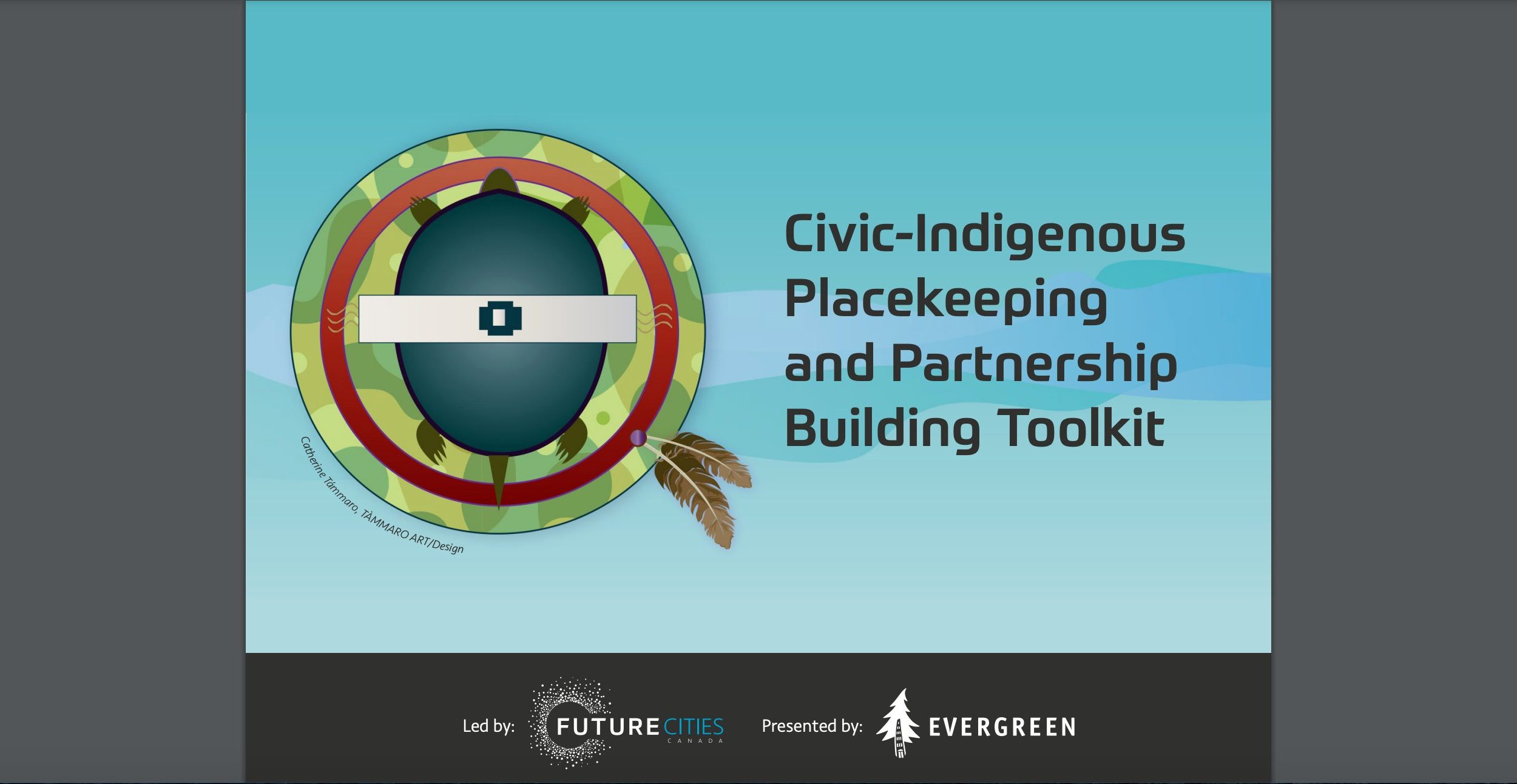Story
Placekeeping, righting relationships and an Indigenous reimagining of cities
An interview with author and Civic-Indigenous toolkit writer Tanya Chung-Tiam-Fook
March 8, 2022
Toolkit
February 14, 2022

Tanya Chung-Tiam-Fook
Evergreen and Future Cities Canada
Aani bozhoo, kweh, tansi, shé:kon, éy swayel, ulakoot, greetings!
A very warm welcome to you, the reader of this civic-Indigenous engagement toolkit, produced by Evergreen and Future Cities Canada, with a focus on partnerships in urban placekeeping.
Municipalities and civic organizations are increasingly being called to commit to the Truth and Reconciliation Actions and to engage with the leadership of Indigenous partners through reflexive, equitable and reciprocal relationships.
The history and future of cities in Canada are interwoven with Indigenous peoples, lands, rights, systems, identities and futures. Civic leaders and municipalities can commit to investing in and supporting opportunities directed at:
Intended Audience
The Toolkit is intended for all those who are interested in Indigenous worldviews and truth and reconciliation. It will be especially useful for community leaders, practitioners’ and staff from municipalities, civic and cultural organizations working in the spaces of placekeeping, city building and reconciliation and who want to strengthen their relationships with Indigenous partners. Although the focus is on urban placekeeping and civic-Indigenous engagement, the Toolkit can also be used by organizations in other sectors interested in Indigenous engagement, Indigenous community, and organizations outside of urban centres, and provincial and territorial associations and organizations.
Tool: Truth-Telling & Indigenous Cultural Awareness
Tool: Decolonizing from Within the Organization
Tool: Guiding Protocols for Civic-Indigenous Engagement Guiding Principles
Tool: Important Guidelines, Commissions and Reports
Tool: Relationship Agreement & Memorandum of Understanding
Tool: Understanding Indigenous Sovereignty & Rights
Tool: 150 Acts of Reconciliation as a Learning Journey
Tool: International Indigenous Design Charter
Tool: Indigenous Knowledge and Data Sovereignty
Teaching: Partnership and Legacy Building through Seven Fundamental Truths
Teaching: Two Row and Dish With One Spoon Wampum Covenants
Teaching: Indigenous Principles for Civic Collaboration
Teaching: 7 Messages for Indigenizing the City
Cover image: by Catherine Tammaro, TÀMMARO ART/Design
This page was updated May 29, 2023